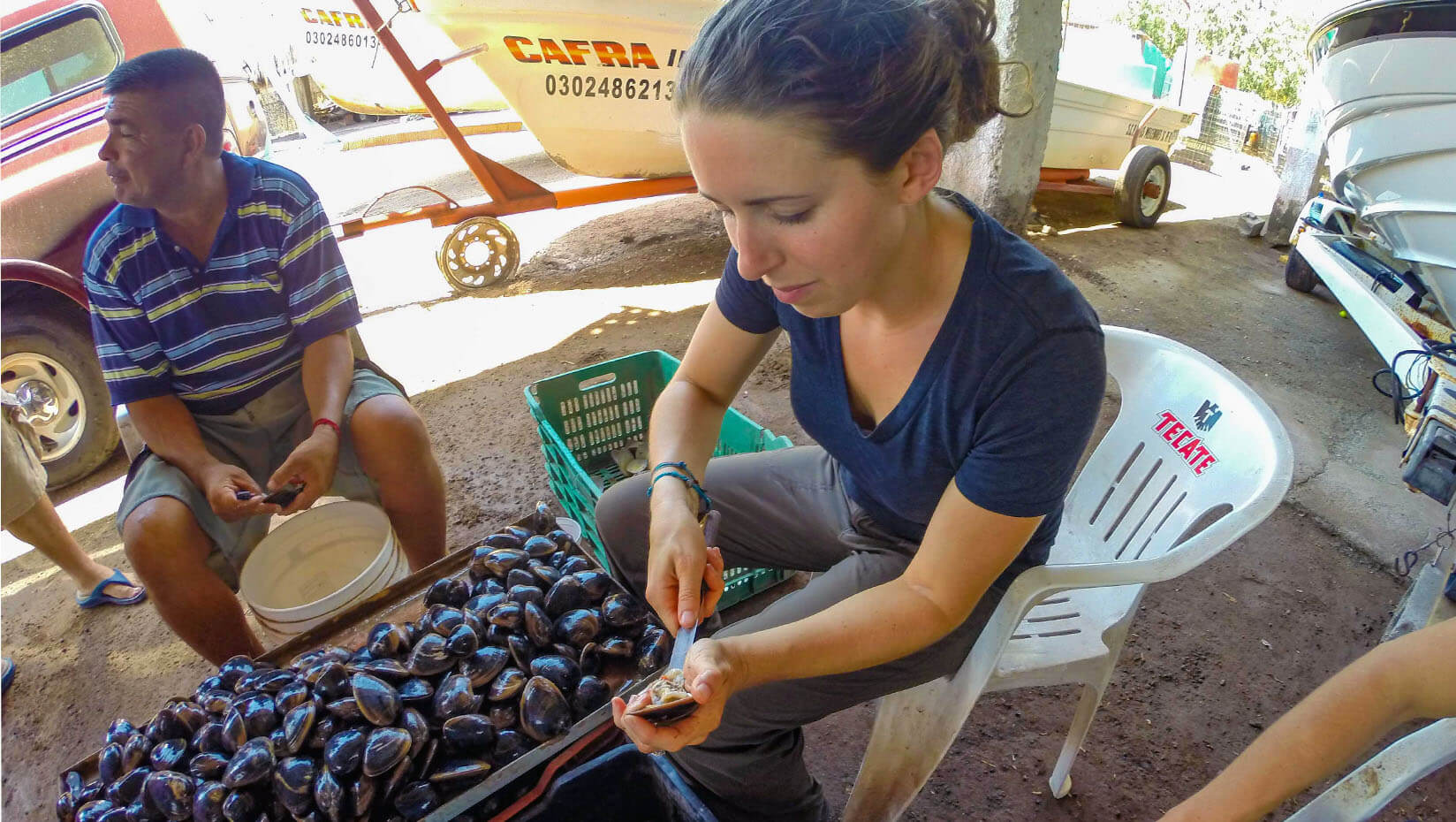
Potential for fisheries co-management shaped by interplay between formal, informal fisheries institutions, UMaine researchers find
Integrating local norms and fishermen’s knowledge into fisheries regulations helps increase trust in fisheries management institutions and can make it easier for co-management to work.
That was a discovery of University of Maine researchers Kara Pellowe and Heather Leslie, who looked at the interplay between formal and informal institutions and the implications for the co-management potential of a Mexican small-scale fishery.
The peer-reviewed scientific journal Marine Policy recently published that and other findings of the UMaine conservation scientists.
Pellowe, a former UMaine postdoctoral student now based at the Stockholm Resilience Centre in Stockholm, Sweden, and Leslie, director of the Darling Marine Center in Walpole, Maine, contend that conflicts between formal institutions, like government agencies, and informal institutions, like unwritten agreements among families and friends, can represent a significant barrier to effective fisheries management.
They examined the potential for co-management, where power and decision-making are shared by fisheries managers and fishermen, in a Mexican fishery that is currently managed via top-down control. They concluded that integrating local norms and knowledge into formal regulations, together with broadened community participation, are necessary precursors to co-management. Doing so would also result in more successful fisheries management.
Their study is based on research that Pellowe conducted as part of her doctoral dissertation in ecology and environmental sciences at UMaine. She completed her dissertation in August 2019.
From 2014–20, Pellowe regularly traveled to Baja California Sur, Mexico, to work closely with fishermen, managers and stakeholders in the fishery of the Mexican chocolate clam (Megapitaria squalida) in Loreto Bay National Park, on the Baja peninsula.
For the study, Pellowe and Leslie define institutions as the rules, norms, and practices governing interactions between people and the marine environment, including the fish that people target for harvest.
Formal institutions are written rules and regulations, while informal institutions are the unwritten rules and social norms that originate from ecological knowledge and traditional practices.
Both types of institutions contribute to resource sustainability. Understanding how they intersect, overlap and conflict is essential for assessing the potential for successful co-management.
Like the Maine lobster, the Mexican chocolate clam is a culturally and economically important species, providing food, income and cultural value to many communities in Baja.
Ensuring the sustainable management of the species requires the trust and cooperation of fishermen. Integrating the rich, local ecological knowledge of fishers into formal regulations can increase fishery sustainability and lead to management that is better able to adapt to future change.
Pellowe and Leslie conducted five years of sociological field work to identify institutions, and document their effects on fishing practices. They documented that a complex web of formal and informal rules governs fishing practices for this one species, the Mexican chocolate clam.
In some cases, formal and informal institutions reinforce one another, presenting potential leverage points for co-management. However, in other cases, formal and informal institutions are in conflict.
Understanding the role and interplay of diverse institutions is essential for identifying pathways and barriers to inclusive and sustainable fisheries management, whether in Mexico, Maine, or elsewhere. “This is a wonderful example of unveiling social factors which contribute to complex ecological systems and their feedbacks, which may influence fisheries production,” said Betsy Von Holle, program director at the National Science Foundation.
For more information about this and related studies, contact Leslie at the Darling Marine Center at heather.leslie@maine.edu.
Contact: Kara Pellowe, kara.pellowe@maine.edu; Heather Leslie, heather.leslie@maine.edu
